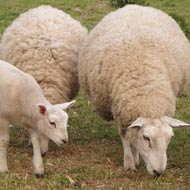Confirmed cases of Schmallenberg rising

"It is important that we ascertain the true levels of the virus, because this will help determine whether there is a need to vaccinate later in the year."
Confirmed cases of Schmallenberg virus are rising, prompting a call for farmers to submit lambs for post-mortem examination.
SBV was found in lambs in the south west of England last month, and subsequently in North Yorkshire and on four holdings in the North East of England.
Schmallenberg can infect pregnant sheep and cattle, causing severe malformations of foetuses in the womb. It does not spread from animal to animal but, like bluetongue, is transmitted by infected midges.
The virus emerged across Western Europe in November 2011 and by July 2013, calves, lambs and kids with severe skeletal deformities had been reported in at least 24 European countries.
Ben Strugnell, of Farm Post Mortem Ltd, commented: The possible re-emergence of Schmallenberg was predicted following a study in autumn 2015 which tested young flock replacement sheep in the south of England, the results of which suggested that levels of immunity may have dropped.”
Mr Strugnell urged producers to submit lambs with skeletal deformities for post-mortem examination so that the cause can be confirmed. “The best advice for producers is to contact their vet, who can provide information on the best way to arrange a post-mortem,” he continued.
“Blood sampling of ewes which have affected lambs is also useful. Younger sheep may be most at risk as older ones may be immune from previous exposure to the virus.”
There is currently no available vaccine for Schmallenberg and Mr Strugnell said it is already too late to vaccinate sheep that are due to lamb in spring.
“However, it is important that we ascertain the true levels of the virus, because this will help determine whether there is a need to vaccinate later in the year,” he concluded.



 The Federation of Independent Veterinary Practices (FIVP) has announced a third season of its podcast, Practice Matters.
The Federation of Independent Veterinary Practices (FIVP) has announced a third season of its podcast, Practice Matters.